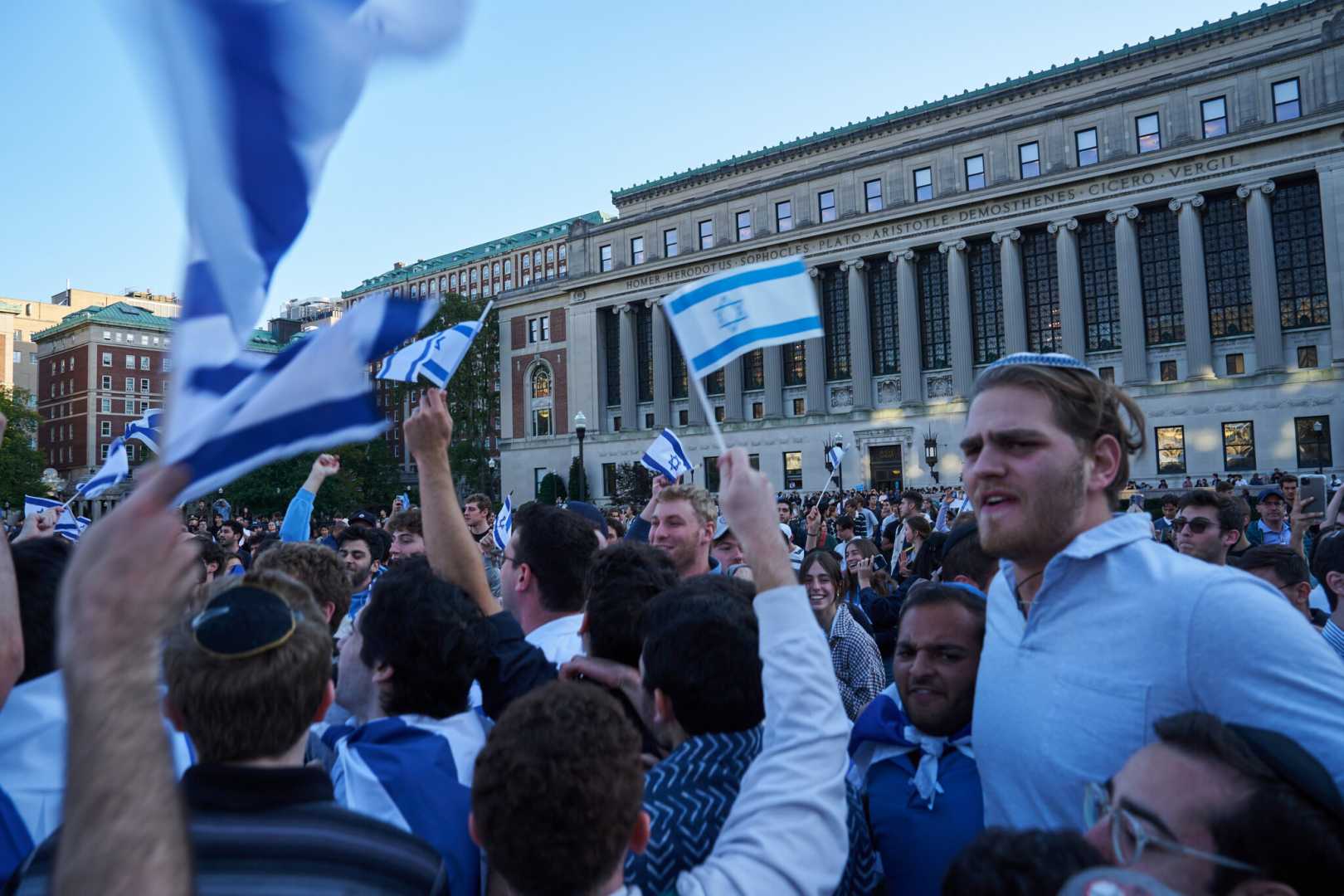News
Columbia University Investigates Students Critical of Israel Amid Trump Pressure

NEW YORK (AP) — Columbia University senior Maryam Alwan, while visiting family in Jordan over the winter break, received an email from the university accusing her of discriminatory harassment. Her top offense: writing an op-ed in the student newspaper advocating for divestment from Israel. This investigation is part of a larger trend initiated by a new university disciplinary committee — the Office of Institutional Equity — which has targeted Columbia students for criticizing Israel, according to records provided to The Associated Press.
In recent weeks, dozens of students have received notices for activities ranging from sharing pro-Palestinian social media posts to participating in “unauthorized” protests. One student is facing investigation for putting up off-campus stickers resembling “Wanted” posters featuring university trustees. Another, the president of a campus literary club, has been sanctioned for co-hosting an art exhibition on a private property.
Investigators claim the unsigned op-ed in the Columbia Spectator, which urged the university to sever academic ties to Israel, may have caused “unwelcome conduct” based on students’ religion, national origin, or military service. They promised a thorough investigation, with possible consequences ranging from a warning to expulsion.
“It just felt so dystopian to have something go through rigorous edits only to be labeled discriminatory because it’s about Palestine,” said Alwan, a Palestinian-American studying comparative studies. “It made me not want to write or say anything on the subject anymore.”
The creation of this new disciplinary office has raised concerns among students, faculty, and free speech advocates, who argue that the university is succumbing to political pressure from President Donald Trump regarding funding to universities and the treatment of campus “agitators.”
“Based on how these cases have proceeded, the university appears to be responding to governmental pressure to suppress and chill protected speech,” said Amy Greer, an attorney advising some affected students. “It’s operating as a business by protecting its assets ahead of the students, faculty, and staff.”
On Monday, federal agencies indicated they may cut $51 million in contracts with the university due to its alleged failure to protect Jewish students from harassment. “We are resolute that calling for, promoting, or glorifying violence or terror has no place at our university,” Columbia stated following the announcement.
House Republicans have also initiated a review of Columbia’s disciplinary procedures, demanding student records regarding several campus incidents before a Feb. 27 deadline. Columbia representatives declined to comment on the investigations or whether any records were submitted to Congress.
Among the students receiving disciplinary notices are Jewish students involved in pro-Palestinian protests. Reports indicate that these individuals have claimed that some protest rhetoric has veered into antisemitism and that the university has been overly lenient in addressing environments hostile to supporters of Israel.
In August, Columbia’s task force on antisemitism reported that many Jewish students have felt ostracized or abused during pro-Palestinian demonstrations, with instances where protesters forced their way into campus buildings, prompting police involvement.
The disciplinary committee’s policies mandate students to sign a nondisclosure agreement to access case materials or engage with investigators, resulting in a lack of transparency throughout the process. Recently, some students reported that they were asked to name others linked to pro-Palestinian groups and were left unclear if specific terms like “Zionist” or “genocide” would be classified as harassment.
Graduate student Mahmoud Khalil, accused of misconduct just weeks before his graduation, stated, “I have around 13 allegations against me, most of them are social media posts that I had nothing to do with.” After refusing to sign the nondisclosure agreement, he faced a hold on his transcript. Khalil later appealed with legal assistance, leading to the university backing down.
He added, “They just want to show Congress and right-wing politicians that they’re doing something regardless of the stakes for students.” Many believe the recent disciplinary actions might reignite the pro-Palestinian protest movement, which significantly impacted campuses last year.
In recent events, Barnard College students protested the expulsion of two students accused of disrupting an Israeli history class, with arrests occurring after a takeover of a campus building.












